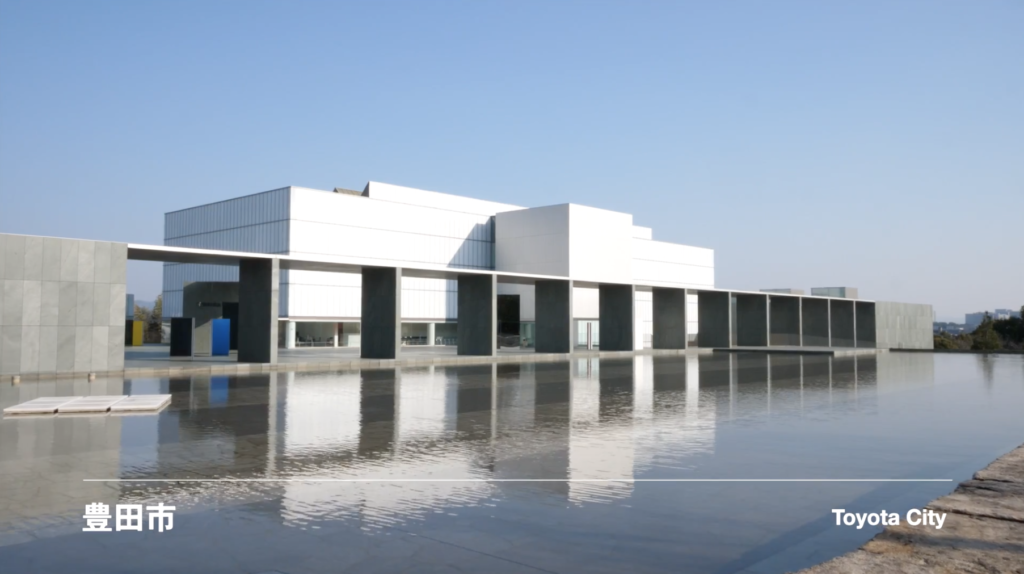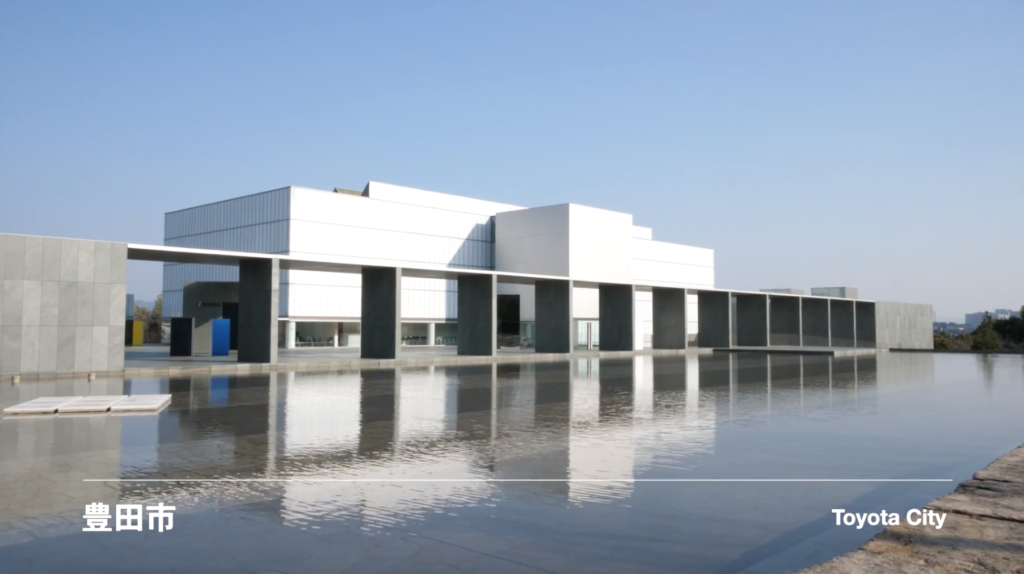[ad_1]

Toyota City, a venue of the 2019 Aichi Triennale.
COURTESY AICHI TRIENNALE
In an open letter sent to ARTnews on Tuesday morning, a group of artists called on the Aichi Triennale in Nagoya, Japan, to remove their work from the show. The open letter comes a week after the triennial took work off view, in a controversy that some have alleged is censorship.
The letter is signed by Tania Bruguera, Pia Camil, Claudia Martínez Garay, Regina José Galindo, and Javier Téllez, as well as an artist who served as a curator to this year’s Triennale, Pedro Reyes.
A representative for the triennale did not immediately respond to a request for comment.
When the triennial’s 2019 edition opened to the public on August 1, it included a mini-show titled “After ‘Freedom of Expression?’ ” that dealt with the censorship of artworks in Japan. That section included a work by Korean artists Kim Seo-kyung and Kim Eun-sung that dealt explicitly with Japan’s brutal history of ianfu, or comfort women, who were drawn from around Asia, particularly Korea, and forced into sexual slavery during World War II. (This history was not officially acknowledged by Japan until 2015.) Three days after the opening of the triennale the curatorial team, working in conjunction with the local government, closed the section.
In an August 6 open letter posted to Facebook, 72 of the over 90 participating artists decried the decision to close that show, deeming it censorship. A week later, nine of the artists have called for the removal of their artworks in the Triennale for as long as “After ‘Freedom of Expression?’ ” remains closed, “as a public gesture of solidarity with the censored artists.”
Below is the full letter.
IN DEFENSE OF FREEDOM OF EXPRESSION
August 12, 2019We, the undersigned artists participating in the Aichi Triennale (2019), condemn the decision to close a full section of the exhibition as an unacceptable act of censorship. The section titled “After Freedom of Expression?”, a special project of the Aichi Triennale, was closed indefinitely to the public on August 3rd due to political pressure from the State as well as pressure from anonymous sources threatening to take violent and terrorist actions unless the works in question were removed from the exhibition.
As we expressed publicly in a previous letter, we repudiate these threats inciting violence against the staff of the triennale and the censored art works. However, while we believe that all precautions must be taken to ensure the mental and physical safety of the exhibition staff and the visitors of the Trienniale, we insist that “After Freedom of Expression?” should be opened and remain on view until the scheduled closing of the exhibition.
The main target of the attack in this case is the work “Statue of a Girl of Peace “, by Kim Seo-kyung and Kim Eun-sung: a sculpture that attempts to repair historical memory focusing on Japan’s military sexual slavery (euphemistically called “comfort women”) a historical issue that is continuously repressed in Japan. We consider it an ethical obligation to stand by the exhibiting artists voices and their work being exhibited. Freedom of expression is an unalienable right that needs to be defended independently of any context.
The attacks on freedom include: (1) Nagoya mayor Takashi Kawamura’s unfortunate comments calling for the permanent closure of “After Freedom of Expression?”; (2) a statement made by Chief Cabinet Secretary, Yoshihide Suga, threatening to cut off future funding to the Trienniale through the national Agency for Cultural Affairs; (3) numerous anonymous calls harassing the exhibition staff; (4) a fax threatening terrorist action unless the section be closed.
We believe that the Aichi Triennale organizers’ decision to surrender to irrational threats and political demands violates freedom of expression and we question their decision to close the section “After Freedom of Expression?” without previously discussing it with the participating artists, the other curators and the organizers of the special exhibition. We fundamentally disagree that this is an issue of “risk management” and not one of censorship, a fact that has been denounced publicly by Amnesty International Japan, AICA Japan, Pen international as well as local and international press.
As a cultural institution, it is the Aichi Triennale’s responsibility to stand by the rights of its exhibiting artists and to protect freedom of expression. We understand that it is not an easy decision to make when people’s lives and security are at stake. But as a public institution, it is also its responsibility to work in collaboration with the corresponding authorities to provide protection and security for its staff, visiting public and anyone involved in the exhibition. It is the authority’s responsibility to undertake a serious and formal investigation as would be standard in the case of any terrorist threat. All these measures should have been taken into account before closing down a section of the exhibition.
In no way do we want to implicate the staff of the Aichi Triennale and its exhibition spaces with whom we have had a mutually supportive and positive relationship. We thank them for their hard work and stand by them through this difficult time. However, more than a week has passed since “After Freedom of Expression?” was censored. During this time, the organizers have been compliant in organizing an open discussion with the artists and we have insisted on the importance of reopening the exhibition. Also, at least two people have been detained in connection to the terrorist threats. However, we have not been given any clarity as to whether the censored section will be reopened.
Therefore, as a public gesture of solidarity with the censored artists, we demand that the organizers temporarily suspend the exhibition of our artworks in the Triennale while “After Freedom of Expression?” remains closed to the public.
Through this action we sincerely hope that the organizers of the Aichi Triennale will re-open the section “After Freedom of Expression?” and continue with their valuable work without thwarting freedom of expression by giving way to political intervention and violence.
Freedom of expression matters.
Tania Bruguera
Javier Téllez
Regina José Galindo
Mónica Mayer
Pia Camil
Claudia Martínez Garay
Minouk Lim
Reynier Leyva Novo
Park Chan-kyong
Pedro Reyes
Dora García
Ugo Rondinone
Update 08/13/2019, 2:30 p.m.: The post has been updated to include the signatures of Dora García and Ugo Rondinone.
[ad_2]
Source link

